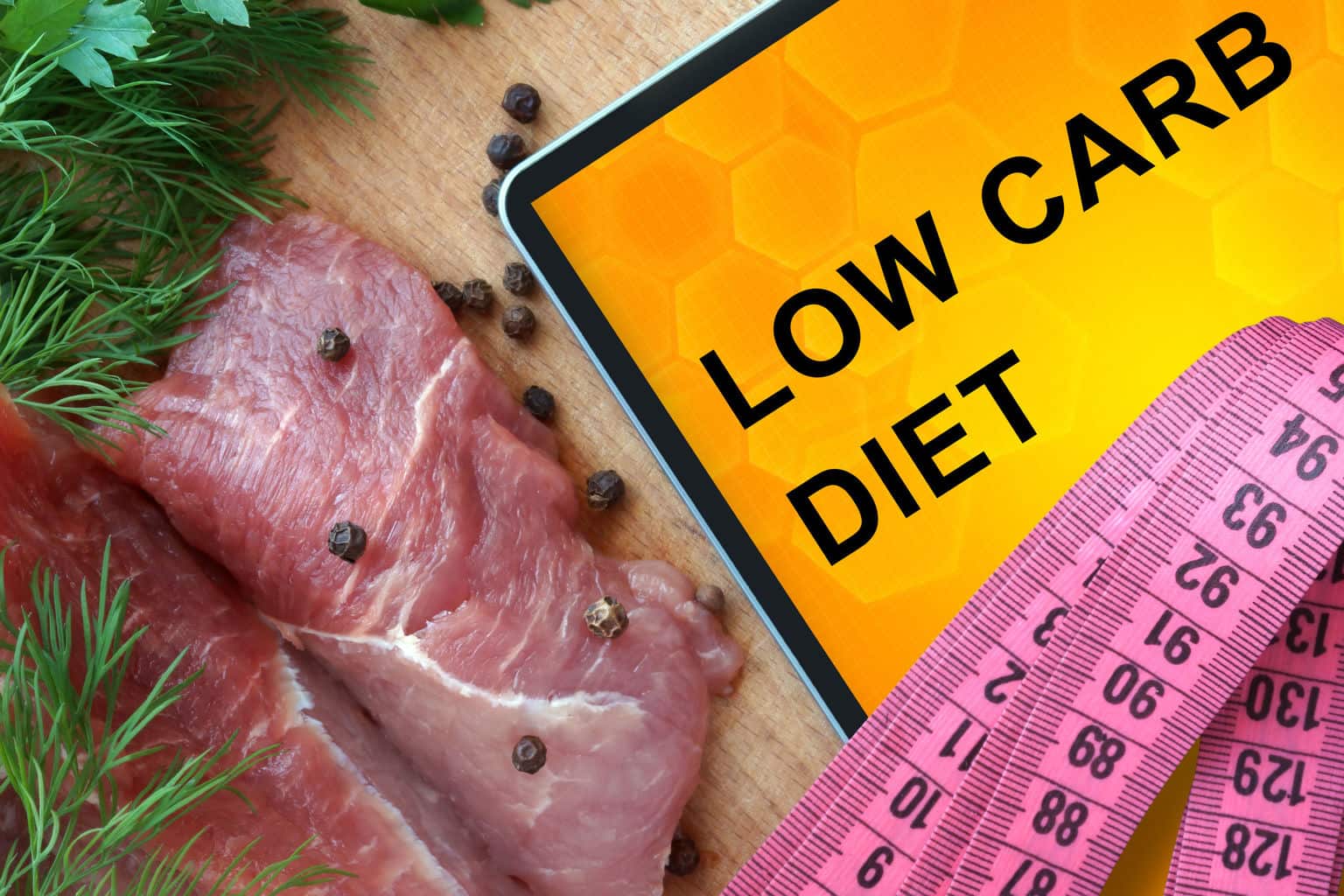
[cmamad id=”4567″ align=”center” tabid=”display-desktop” mobid=”display-desktop” stg=””]
I was one of the original big believers in low-carb diets.
But knowing risks of low-carb diets now, I just can’t support low-carb diets.
Why are low-carb diets bad?
Let me tell you about my experience first.
I started with Protein Power, the diet plan from the Eades medical doctor team.
And I then moved on to Atkins and then I tried Paleo.
I know that the Atkins diet is bad for you, but I didn’t know it yet.
I spent years experimenting with low carb, and then I moved to intermittent fasting.
I found that when you go low-carb, you feel really good for about one year…but the ax falls!
In this beginning period, you’re getting a lot of stress hormones such as cortisol.
And these stress hormones make you feel really good.
But then you hit a wall.
Everyone who does low-carb diets hits a wall.
And the wall hurts — it affects your sleep, your energy, and more.
There is a lot of evidence of low-carb diet causing ED.
Yes, many times, that wall leads to much worse erectile dysfunction in men.
All that cortisol eventually just wears us out and hurts our erections.
So…our bodies have to do something to survive the low-carb diet…
So our bodies respond by sacrificing our reproductive capacity… in favor of survival.
Low-carb diets are similar to starvation and survival diets.
The body is highly stressed on a low-carb diet, just as it’s stressed with starvation or survival.
[cmamad id=”4568″ align=”center” tabid=”display-desktop” mobid=”display-desktop” stg=””]
Eventually, reproductive capacity goes away…and no more good erections!
I’ve had guys go from low-carb diets to high carb, and their ED disappears in a week or two.
Not everyone will respond so quickly, but many men do.
And worse yet, perhaps surprisingly, low-carb diets can actually cause a diabetic situation.
Remember: diabetes consists of two problems.
The first problem is poor functioning of the insulin-producing islets of Langerhans, the beta cells in the pancreas.
Sometimes these beta cells in the pancreas die off completely or near completely.
Sometimes they just get smaller.
The second problem in diabetes consists of insulin resistance.
If you have insulin resistance AND declining beta cells, THEN you have developed type two diabetes.
So with that, let’s look at this study out of the Netherlands.
It shows some of the severe deficiencies of the low-carb diet fad.

When your beta cells are smaller, they don’t produce enough insulin
In this extremely well-constructed mouse study, researchers gave mice low-carb diets.
The low-carb diets induce a low carb state known as ketosis.
Then the researchers evaluated the health of the mouse beta cells, pancreas and overall health on this low-carb diet.
(And by the way, there have been similar studies done with humans that have shown the same thing.)
But let’s stick to this mouse study to see what we can learn.
So here’s a huge red flag.
A REDUCTION IN BETA CELL MASS WAS OBSERVED IN THE LOW CARB DIET MICE — TOGETHER WITH SMALLER ISLETS (BETA CELLS).
What you want is you want bigger islets and MORE beta cells, not LESS.
You need these islets because they contain the precious beta cells that produce insulin.
But instead, after low-carb diets for an extended period, the mice lost beta cells.
And their islets became smaller — indicating lower insulin function.

But what about weight? Did the mice stay nice and thin on the low-carb diet?
Only at the beginning of the low-carb diet — the mice lost weight at first.
But they regained the weight after a while.
This is very common with low-carb diets.
In fact, I lost weight when I started low-carb also.
But eventually, I gained all the weight back and then some…and you will too!
Because insulin resistance is a huge problem on low-carb diets.
The low-carb mice became less and less responsive to insulin.
Because the beta-cells in the pancreas became smaller. And stopped producing insulin.
The body also became more resistant to the insulin that was being produced.
It was the perfect storm that eventually results in diabetes.
Not everybody who does a low-carb diet will end up with diabetes.
But many people will end up with severe metabolic problems.
And it may take years to reverse the damage of a low-carb diet if you are on it for any length of time.
One problem with this study is that they did give the mice PUFAs, bad fats that lower metabolism.
It’s very hard to find a study where they don’t give mice PUFAs. Everyone, not just mice, is eating too many PUFA (bad fats found in vegetable oil such as peanut oil, canola oil, soybean oil, etc.)
The PUFAs certainly didn’t improve things and may have made the diabetes symptoms worse.
In any event, this and many other studies show that a low-carb diet is extremely stressful on the body and may lead to diabetes.
And you should avoid the low-carb diets.

https://www.ncbi.nlm.nih.gov/pubmed/24398402

Leave a Reply